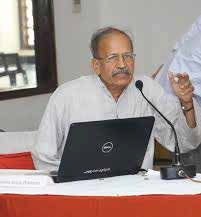
Daily News & Analysis
Jainism says that knowledge is structured in the consciousness (soul) and a pure soul has infinite knowledge.
Mahavir Jayanti is being celebrated on April 5 throughout the world. This year we are also celebrating the 150th birth anniversary of Swami Vivekanand. Bhagwan Mahavir and Swami Vivekanand are two of the greatest human beings who came to this Earth and brought revolutionary changes in the lives of people through their concept of spirituality.Are their concepts of religion and spirituality still relevant in this modern era of science and technology, where knowledge is the most important factor? To answer these questions, there is need to go into details of the two disciplines and see whether there are some common elements in them. Actually science and technology and their commercialisation appear to have changed the whole world in the last 200 years.
An impression has been created that scientific knowledge is the supreme knowledge and anything other than this is not very meaningful. Human consciousness is capable of organising data and can generate information and hence knowledge in some way.
According to David Bohm, a famous quantum physicist, whether an electron will behave as a wave or as a particle actually depends on the state of the mind or consciousness of the experimenter.
Actually the concept of consciousness comes into the picture in a much bigger way when one tries to study the limitations of modern science in describing reality. As per Godel's incompleteness theorems, the methodologies of science themselves are such that they cannot describe reality in totality and hence to define and understand reality completely, there is a need to take concepts like consciousness into account which does not have finite boundaries.
Many eminent scientists like Isaac Asimov, EP Wigner, BD Josephson, Roger Penrose, llya Prigogine, ECG Sudarshan and others feel that consciousness should be considered seriously if science has to further progress.
The concept of Indian philosophy that knowledge is being structured in the consciousness is very relevant in the present context. In particular, Jainism says that knowledge is structured in the consciousness (soul) and a pure soul has infinite knowledge.
Also, knowledge is of five types viz. Mati Jnana (knowledge through mind), Shruta Jnana (knowledge obtained by listening and through books etc), Avadhi Jnana (telepathy), Manahparyaya Jnana (clairvoyance) and Keval Jnana (absolute knowledge). What we call ordinary knowledge could be therefore just a subset of the first two types, whereas telepathy and clairvoyance are scientifically controversial and needs more critical investigation.
Thus all scientific knowledge appears to be only a subset of this total knowledge which is structured in the consciousness. This seems to be a very powerful argument which needs to be critically examined in this modern era of knowledge.
 Dr. Surendra Singh Pokharna
Dr. Surendra Singh Pokharna